
The Life and Times of Hubert Brooks M.C. C.D.
A Canadian Hero

 |
|
 |
In the chapters that follow, the lives of each of the children of Hubert and Marie Brooks will be told. Through these accounts the lives of Hubert and Marie in Bluesky will be further related.
A brief note however on Marie Brooks who was known as "Mama Candy" as she invariably passed out candy
to the children. A crepe or pancake wrapped around some sugar was a favorite handout.
Despite having lived in for a time in North Dakota and then in Bluesky
Alberta, Marie was not as proficient in English as one might think. Perhaps continuing to live amongst French-Canadian settlers and speaking French
in the home kept her comfortable with the French language. Marie could however get by in English.
A diary that Marie wrote between February 1, 1929 and October 31, 1931 in now in the hands
of Hubert Brooks of Boucherville Québec. It is written in French, and except for one period which will be commented on later, has a day to day
account making note primarily of a) the weather(a habit taken up by most anyone who has farmed or been involved closely with farmers) and b) who
might be visiting her on that day. The diary is of course written in French. Perhaps remarkably it contains no mention of grandchildren or
personal feelings.
It is not known whether or not Marie had other diaries.
Following the collapse of the "cattle business", Hubert Brooks financially helped Alfred and Aimé to set up a General Store in Waterhole (located about 5 miles west of the Hubert Brooks homestead cabin) with Alfred listed as the "Manager".
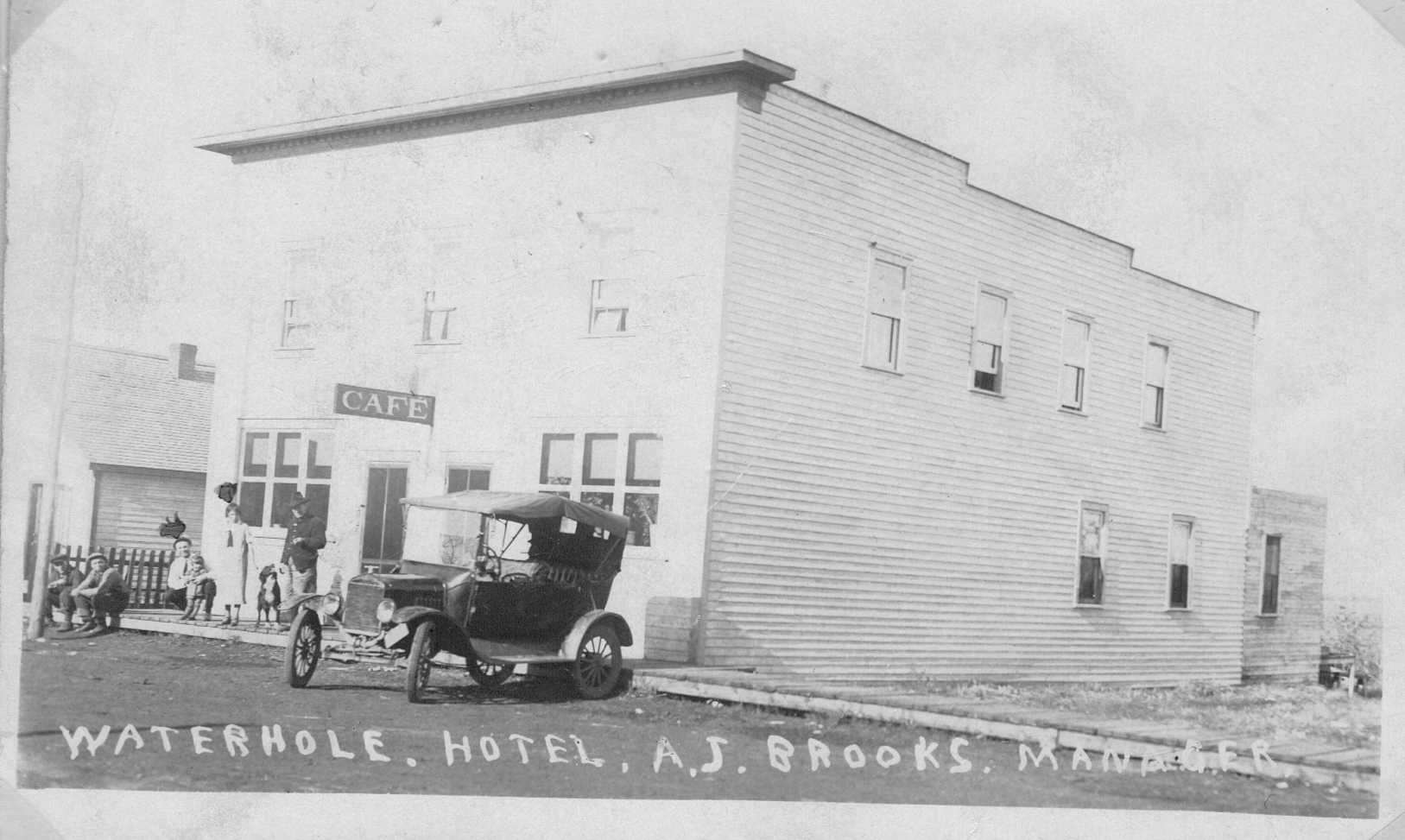
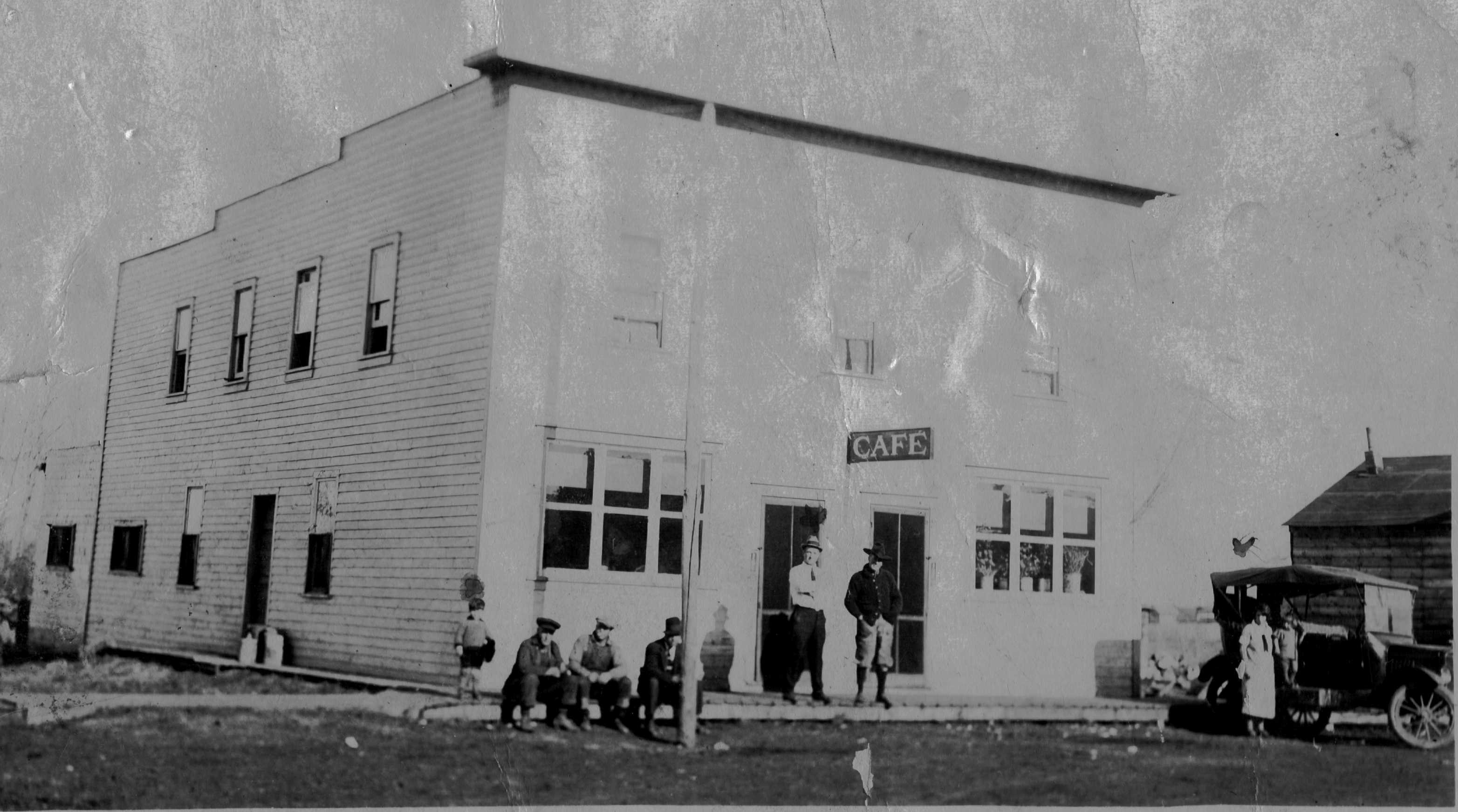
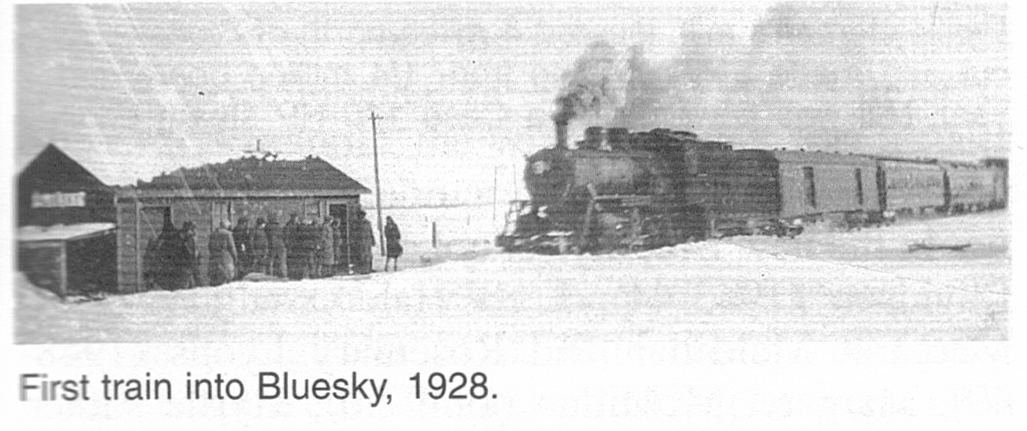
When the NAR Railroad approached from the east in 1928, the engineers chose to locate a siding three miles west of Old Bluesky, since this was a point six miles west of the previous stop at Whitelaw the traditional distance between "stops". (6 miles being the distance typically needed to replenish the water for the steam engine.) This location 3 miles down the road was the NEW location of ther hamlet of Bluesky and is where Bluesky is located to this day.
At that time Hubert Brooks saw the writing on the wall for his General Store and decided to sell both the Store and residence - which he eventually did to a man by the name of Algers.
The move from Old Bluesky to the new location of Bluesky was gradual. Some residents and businesses had moved to Whitelaw in 1927, when the railroad reached that point. Quickly though, a new railroad station, grain elevators, businesses and residences sprang up in new Bluesky. The school continued at Old Bluesky until 1937, since the Cradock School, just one mile west of the new location served that area.
Also around this time, Hubert Brooks started sons, Joe and Otto in business, in a general store in the new town of Bluesky – the Brook’s Brothers Store.
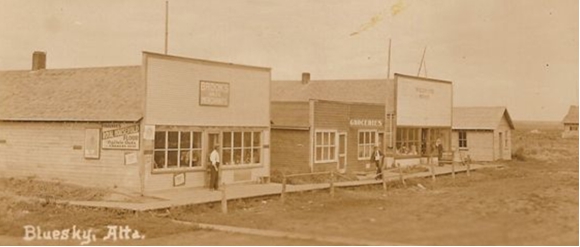
|

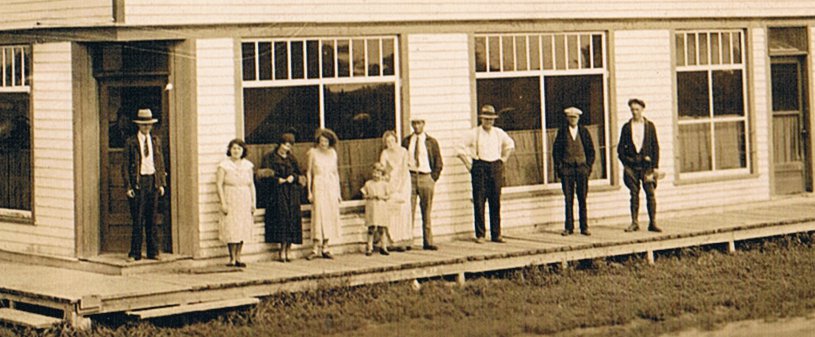
|
In the Brook's General Store picture above, the Store was at the start of the main street. The railway tracks and the grain elevators were right across the street (essentially horizontal to the plane of the picture).
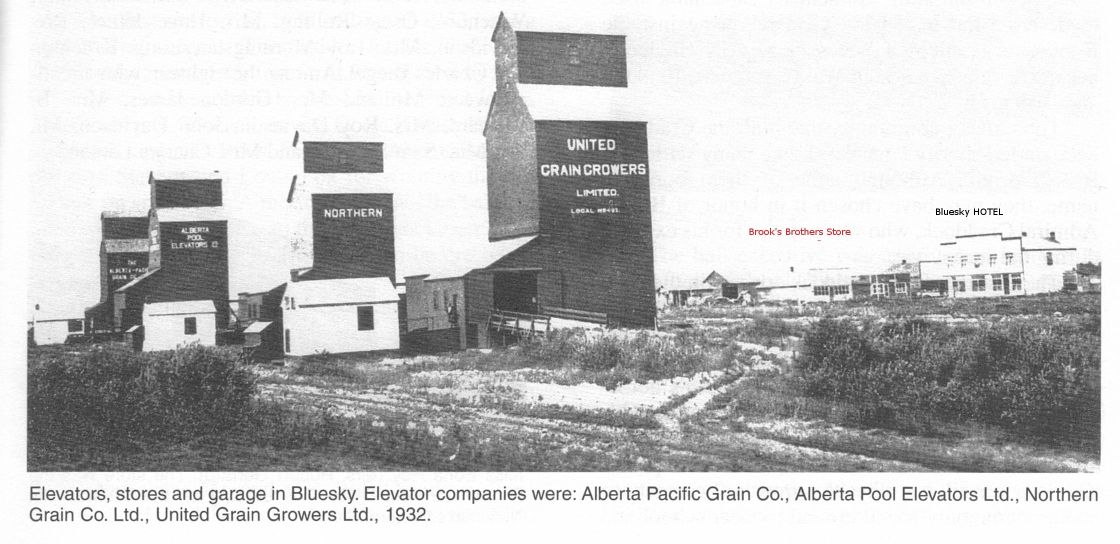
1925 was a tough year on the prairies. The wheat crops were not growing and there was a severe drought. There was nothing to feed the cattle so almost all of them died. Some contracted disease. Local farmers had little money so the general store was not doing so well. Further it was clear that it was only a matter of time before the NAR Railway would expand further west, and the 6 mile location clearly would be north of Waterhole and would be the death knell for Waterhole and Fred's General Store. The dream for Fred was crumbling down.
Alfred Brooks had managed the General Store in Waterhole for 4 years. With the onset of the severe draught, he grew disillusioned – times were very tough. In the spring of 1925 Alfred and Laura decided to move back east to Ottawa to wife Laura's home town where Alfred was sure he could prosper in a career in mineral prospecting (in nothern Ontario and Québec).
(Later in the fall of 1928, after Alfred, Laura and family had already left for Ottawa, the NAR Railway did move further west and they identified their next stop 6 miles further west from new Bluesky at a location which was to become the town of Fairview. When this was done, Waterhole residents essentially packed up en masse and moved four miles north to the new townsite - just as Alfred had expected they would do. )
With Alfred's departure, son Aimé also left Bluesky for Meota Saskatchewan
to pursue a career in farming.
Sons Joseph and Otto remained in Bluesky with their Brook's Brothers General Store.
But times had been tough for the Brooks clan, and Hubert's money reserves had effectively been exhausted. Unlike a lot of their neighbors, the Brooks clan were not farmers, they had not made it in the fur business (coming in just prior to the area effectively being hunted out), had not made it in the cattle business, and their General Stores had been subject to the bad luck of Pairie weather.
It got to the point that Hubert and Marie had to auction off their cherished china and crystal. Their immediate neighbor to the south, the Salmons, bought most of the items they put up for sale. Interestingly, the Salmons had arrived from Lowell Mass. -- a much warmer climate -- however the Salmons were farmers -- and they prospered from the rich soil. Jeannine Brooks remembers buying eggs from their neighbor the Salmons and seeing the eggs for sale resting in one of Grandma Candy's crystal bowels.
| PREVIOUS PAGE | GO TO TOP OF PAGE FOR APPENDIX NAVIGATION MENU |
NEXT PAGE |
The Life and Times of Hubert Brooks M.C. C.D.